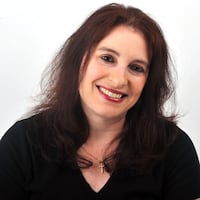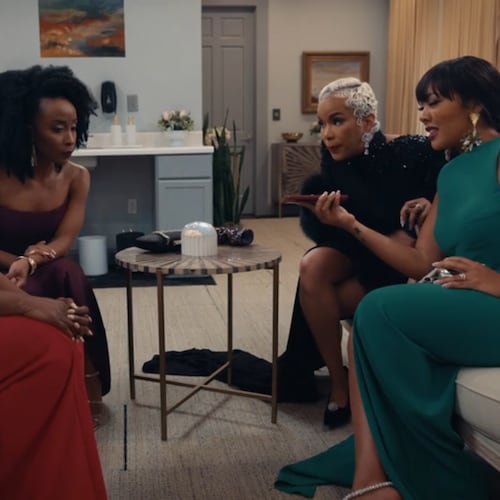BY MELISSA RUGGIERI
When Howard Jones arrived in 1983 with “New Song,” a bubbly pop tune filled with springy synthesizers much brighter than what his New Wave brethren were contributing, most weren’t sure what to make of his sound.
For the next six years, Jones continued to enlighten with his sequencers and synthesizers that powered a string of hits including “What is Love?”, “Life in One Day,” “Everlasting Love” and the enduring rainbow of a song, “Things Can Only Get Better.”
While radio play waned in the early ‘90s, the British singer/musician hasn’t stopped, whether it meant joining Ringo Starr’s All-Starr Band for a roll around the country, teaming up for live shows with other ‘80s landmarks such as Culture Club and The Thompson Twins’ Tom Bailey, crafting the wildly ambitious electronic project “Engage,” which arrived in February, or working on music for “Eddie the Eagle,” the upcoming movie about Eddie Edwards, Great Britain's first ski jumper to enter the Winter Olympics.
Jones, 60, will make his first appearance at Variety Playhouse on Sunday, and calls his three-piece electronic band “very modern.”
The affable, quick-to-laugh Jones dialed in from his home in England last week to chat.
Q: You’re going to be in the States quite a bit this summer and fall.
A: All year, really. I've done two or three tours already this year. I've been committing myself to doing a lot of shows. I'm still up and running and functioning really well, so I should do it while I can.
Q: Do you have a preference between the solo piano shows and the band shows?
A: I love both, but playing with the band is great fun. And then the solo shows are much more intimate and I get to play songs that you wouldn't hear in the band set at all. I wouldn't want to do one without the other. I find when I do the solo shows it helps me work on my playing and singing and really communicate. It's not always possible to do the electric show every night of the week, and I can do the solo shows at smaller venues.
Q: It looks like your set lists stay pretty true to the hits. Have these songs taken on a different meaning for you as you’ve gotten older?
A: Because we're constantly rejuvenating the way we play live, we bring in new elements and new sounds. You can't change the fundamental things of it, but for instance on 'Things Can Only Get Better,' I do that usually at the end of the set and then launch into the remix of the song (live), so it's something unexpected to the audience and shows that we try to give things a new twist. One of the things that the technology allows us to do is recreate organically what is on the record, and that sound is really in vogue now.
Credit: Melissa Ruggieri
Credit: Melissa Ruggieri
Q: How about the lyrics? Do they still resonate with you?
A: This is the great thing for me…I could envision myself being in the position where I didn't believe in the lyrics anymore, but that isn't the case because I still feel very happy about singing those songs. I totally still believe in them. 'What is Love' is all about questioning love, 'Things' is such a positive song about when things go horribly wrong, you can still create anew.
Q: What do you think were some of your defining moments in the ‘80s? It’s almost as if you were ahead of the curve with your sound.
A: It was very much a case that people didn't understand what I was doing and it was groundbreaking. I used gear that you could buy in a music shop. They weren't made in a science lab! I had this idea for doing a one-man show and the songs were very much crafted around the technology. I had an 8-note sequencer. I had an arpeggio on one of the synths that could change the pitch - it was quite difficult to do. I was wrestling with the technology the whole time. It was before computers, so the writing was geared to what I had. There have been great advances in technology and we've been able to sample some of my original sounds and be very authentic and reproduce the delays and reverbs.
Q: Tell me about your “Engage” project. I watched the trailer and it sounds and looks very cool, but it also looks very ambitious.
A: I spent a year on it. I decided I wanted to do something to challenge myself. I wanted to base it around a live performance rather than a studio album. It's continuous music that flows from one section to the other and visuals are really integrated into it. I'm not going to write songs, but pieces. There's a book that we made that's interactive; (in the book) every song has a task so if you want, you can build things that are representative of the song. And then there is a free app that at the 'Engage' shows (Aug. 19 in New York), you can send a signal to the phone that activates a visual sequence that mirrors what is being sung onstage.
Q: Have you gotten into the whole EDM movement?
A: I follow what's going on and there's amazing things going on in electronic music. But I come from a songwriting and melodic background and I'm still really doing that.
Q: Do you think without sites like PledgeMusic and Kickstarter that you would be able to do these projects because of how the industry has changed?
A: I would have been able to do it without it, but Pledge allowed me to do it on a grander scale - to get the book made and developed, to have a better live show. Interacting with the fans was one of the best bits about (crowdfunding). We had them in the studio. The other (donation gift) that I really enjoyed was I said I would write a piano piece specifically for the person. I talked with them on Skype, some came into the studio, and composed a piece while they were there. It was quite a moving experience.
Q: Last year you did a series of dates with Tom Bailey and you’ve been part of Ringo’s All-Starr Band. Who would you like to work with?
A: I don't really have any thoughts about that. There's usually one young artist I work with to get them started with their career. People helped me when I was just starting. I try to take those people out on tour and things like that and help them make their first recording. That's how I think of working with other people. I'm doing an acoustic tour in February in the U.K. with a young folk artist, Elise Yuill. I would love to introduce her to America.
Q: You’re pretty active on Twitter. Do you like the social media engagement or is it more of a necessary evil?
A: I sort of like it – I try not to be a slave to it. I'll never get anything done! When I'm on tour, I'm much more active, showing people what we're doing. When I'm home, working in studio, I don't have much time to do it. I have someone else do the Facebook thing. Your mind needs to be a bit clear to work.
About the Author
Keep Reading
The Latest
Featured





